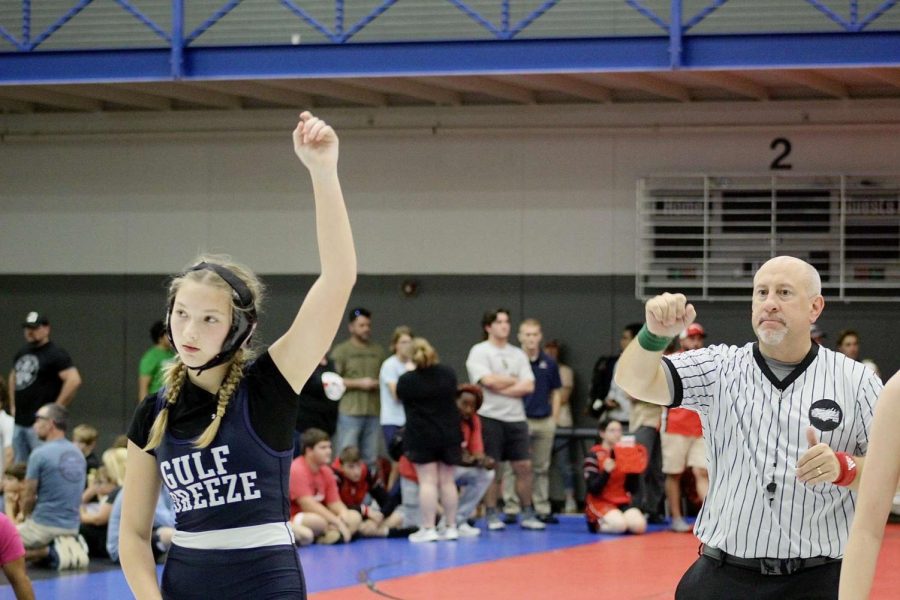Point/Counterpoint: Are online degrees defeating the purpose of college
February 9, 2023
“Online degrees aren’t taking away the purpose of college, they’re just supplying a new and accessible way for people to get a higher-level education.”
Kiera Decesare, Online Editor
As we have entered the digital age and gone through a global pandemic, the attendance of online colleges has risen. Online colleges give people who didn’t have the ability to attend college in person an accessible way to get a degree and jumpstart their careers at a lower cost and a more flexible schedule.
Online degrees give people who didn’t have the chance to go to college when they were younger, for whatever reason, to get a degree. According to a study by US News & World Report, the average age of an online college student is 32. As well as giving older people a chance to get a degree, online degrees are often less expensive, giving students with financial limitations a chance. On average, an online degree is $50,000 cheaper than a traditional brick-and-mortar degree.
For students that want to travel the world, online colleges give them the opportunity to learn while not being tied to one place. Since the classes are all held via Zoom or assignments posted on Canvas, students could get their degree from anywhere in the world.
Online programs also give people who want to pivot their careers a chance to go back to school without having to physically be on campus. Online colleges allow these people to keep their current job, but also allows them to work on getting a degree that would allow them to pursue their new career goal.
Degrees also don’t have to be just online or just in person, the University of Florida offers the PaCE program, where your first two years of college are online, and your last two years are in person. This allows the university to accept more students without having to worry about not having enough dorm or classroom space for their students.
Online degree programs also give students with health issues a chance to get an education. Somebody with a chronic health condition has good days and bad days, making it hard to keep up with a traditional school program during a health flare up. Online school gives them a chance to take as many classes as they want at a time, allowing them to move faster or slower. This allows them the chance to take their time, and graduate in 5 years instead of being pushed by a university to graduate in the traditional 4 years.
Many people are opposed to online degrees as they worry, they will be less rigorous and looked down upon by people. However, online degrees are forced to go through the same accreditation processes that traditional colleges must go through. This ensures that they do give a good education.
Other people worry that employers will not take online degrees seriously. But, according to a study by Northeastern University, 71% percent of businesses said that they hired somebody with an online degree in the last 12 months. The study also states that, “61% of HR leaders firmly believe that online learning is of equal or greater quality to more traditional methods.”
Online degrees aren’t taking away the purpose of college, they’re just supplying a new and accessible way for people to get a higher-level education.
“…there are several areas where online degrees are lacking, which can in-turn hinder one’s academic journey. “
Emily Thomas, Editor in Chief
Since 1989, when the University of Phoenix became the first institution to offer online degrees, many people – lots of whom may have otherwise not gone to college – have been able to receive a college education. While this may seem like a great opportunity for people to earn a degree, online programs are lacking in several areas, which calls into question their validity and efficiency.
One significant benefit to being in a brick-and-mortar classroom is the ease of communication and availability for open discussions. With online degrees, there are of course ways for students to contact their instructors or spark conversations with their peers; however, the nature of online classes creates restrictions. Just like a normal college professor, online instructors have office hours and are not expected to be available at all hours of the day. This may create some conflict for a student who only has time to complete course work in the evening. If they have a question at 7:30 at night, it may not be until the next day that they receive a reply. And taking into account miscommunications or a need for clarification, it could take even longer to get the needed answer.
As for conversations and collaboration amongst students, online discussion boards are simply not as effective as in-class discussions. For one, when you are communicating electronically, especially in larger groups, the flow of ideas is inconsistent and not free. Having one space to share for several conversations can become unorganized and scattered, leaving responses indirect and sometimes too late to be effective or even worth sharing. In addition, for several programs, discussions are noncompulsory, meaning that if someone just wants to stick to their course material and not engage with other students, there is nothing saying they must. While this may seem great for some people who don’t feel comfortable outwardly participating in group discussions or interacting others, they are unfamiliar with, it inhibits one ability to think for themselves. Regardless of whether you decide to provide your own input or not, when you are in a classroom setting, you are still listening to others share their thoughts. This exposes one to ideas beyond the realm of textbook content, allowing them to think critically about the material and apply it to real world situations.
Similarly, learning content by just working through slides or a textbook prevents first-hand experience. A significant portion of a college degree comes from experimentation, conducting research or participating in field-studies. To provide students with this opportunity, some institutions require in-person experience time, aside from their required course work. However, it often falls on the student to seek out these opportunities on their own. For many online students who already struggle to make time for their education, finding free time to work in experience learning can be difficult. Other programs will provide online simulations of labs or real-world scenarios. Nevertheless, this still means students aren’t learning any material firsthand. In these online simulators, everything is coded and has a set outcome, which completely rules out the chance for a student to make a discovery on their own. Ultimately, there is no substitute for personal experience.
Lastly, online degrees allow you to test out of more classes if you prove you’re proficient. Again, while it may seem like a benefit to rule out seemingly unnecessary classes, there can potentially be a lot of instruction excluded when receiving an online degree. If all else, it exemplifies that the two degrees – online and traditional – are incomparable. A bachelors in one year is not equivalent to a bachelors in four with additional classes, experience and time.
Overall, online degrees do provide many people with an opportunity to gain an education and they serve as a substantial alternative if a traditional degree isn’t easily accessible. However, there are several areas where online degrees are lacking, which can in-turn hinder one’s academic journey.





















